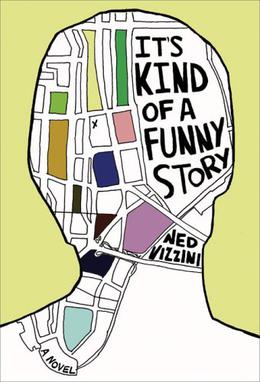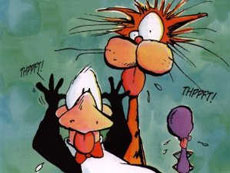Okay, this post has nothing to do with NYC. It is true that
I am making my first trip there next month, but this is not the time for that. I
needed a lighter way to introduce a heavier topic. I could have led with
ancient Egypt. The first time I ever taught that, articles about pyramids and
Tutankhamen suddenly popped up everywhere. How could that be a coincidence? I
mean, that was all old news. Ancient history.
The subject that I’ve been stumbling upon all too often in
the past two years is suicide. And let’s be clear, I realize that neither Robin
Williams nor recent Oscar acceptance speeches have anything to do with me. My
egocentrism has its limits. The first ongoing thinking on suicide came from a
screenplay idea. I had a clear vision of an opening scene involving a suicidal
woman working at a daycare. Then more scenes. Dark thoughts, but darkly
comical. I suppose I’ve wanted to tackle a project like this ever since I saw the
underrated “Crimes of the Heart” on New Year’s Eve, 1986, in a movie theatre in
Fort Worth, Texas. The performances of Jessica Lange, Diane Keaton, Tess Harper
and Sissy Spacek crackled, but Beth Henley’s screenplay (based on her Pulitzer
Prize-winning play) was the true star. Dark, yet warm and funny at the same
time. A major writing accomplishment.
And so I began to write. The flurry of early scenes came
with ease. Why stop and outline? The story, the characters would be my guides.
But the story and characters stalled in hospital. My comedy became
melodramatic. Murderous ideas flopped. A change of setting made matters worse.
I put the project aside. Not dead, but on life support. And so my suicidal
character hovers about. Sometimes I pay her a formal visit; sometimes I can’t
cope—I don’t know how to rescue her or her story. But I can’t let her go. She
needs me.
I’m sure it is that writing and not my increasing despair
that led me to read Judith Guest’s novel Ordinary
People a year and a half ago. I’d
first seen the movie as a midnight screening on campus during my freshman year
and Timothy Hutton’s performance has stuck with me ever since. (I have a Mary
Tyler Moore obsession so the fact that Hutton’s portrayal lingers stronger
spoke volumes about his acting and, I presumed, the source material from
Guest.) Naturally, after reading the book, I had to see the movie again.
Still, my screenplay remained comatose. Thoughts about
suicide continued to shuffle about in my head. But I knew, based on how the
subject was taking on more personal relevance, I needed to focus on other
things. Happy thoughts.
And so I bought Allie Brosh’s wildly refreshing book Hyperbole and a Half: Unfortunate
situations, flawed coping mechanisms, mayhem, and other things that happened. This
had nothing to do with being stuck on suicide. In fact, I stumbled upon the
book after some comment I made on Twitter about not being able to follow anyone
who committed three writing errors in a 140-character Twitter profile. Someone
replied by saying he agreed with me “alot” and by giving me this delightful link. I bought the book, looking for a stickler companion to Lynne Truss’ Eats, Shoots and Leaves, not as Ordinary People II*. It was as laugh out
loud funny as I’d hoped. (I’ve read it twice. A third round is imminent.) But
smack in the middle of the book were two brutally honest chapters on the author’s
bouts with depression and feeling suicidal. My
god, that’s me. How did that get slipped in? Maybe I picked up some wonky
world-revolves-around-me edition.
How else to explain this sudden literary fixation?
My next book pick was one that I grabbed while in a rush at
a bookstore. I bought it based on the title—It’s
Kind of a Funny Story—and for the fact that I had a vague recollection that
the novel had been adapted into a motion picture with a comedian or two in key
roles. Figured I’d get to study a writer’s attempt to carry humor through an
entire book and then I could treat myself to the movie version so I could
casually fit all this into a conversation with someone, along with the standard
Book Snob line, “The book was way better.”
It’s Kind of a Funny
Story wasn’t a funny story at all. Not even kind of. It was all about suicide. Well, and drugs.
After some heavy suicidal ideation, this kid got assigned to an adult psych
ward. It mirrored so much of my hospital experience. I’d turned to reading for
escape, not for validation of my traumatic experience. SPOILER ALERT: The book
ends with the kid making it. He’s almost rosy-hopeful in the end. I made the
mistake of Googling the author, Ned Vizzini. He killed himself in December 2013
at the age of thirty-two.
So not funny. I never bothered checking out the movie.
Next came The Interestings by Meg Wolitzer. No suicides. But the main character’s husband
goes through years of depression. Still not enough distance from the subject.
 |
In searching for this image, I discovered
the book was adapted into a movie last
year. Who knew? Apparently, based on
box office returns, no one.
|
My most recent read is by British author Nick Hornby, A Long Way Down. I checked it out of the
local library right before planning my most recent weekend escape to Seattle.
He was doing a talk and a book signing for his new release, Funny Girl, and I felt it would be rude
to attend without having read—or begun—one of his prior titles. I passed on the
more familiar books on the shelf like About
a Boy and High Fidelity. I wanted
to be different. Maybe I could pose a question based on a less celebrated work.
Ooh! Maybe I’d sound smart. A veritable Book Snub who doesn’t even need movie
adaptations to guide reading selections! All I knew about the book was that it
was about four very different characters and that Hornby took on the first-person
narratives of each. And it was supposed to be funny. My kind of reading, my
kind of writing—at least, what I aspire to write.
The first sentence brought back a familiar refrain. “Can I
explain why I wanted to jump off the top of a tower block?” Seriously?! Yes,
the four characters had nothing in common. Nothing except for the fact they
each decided to commit suicide from the same building on the same New Year’s
Eve.
How to explain this unconscious cycle of suicidal reading? Perhaps
I have been irresponsible. I do hate reading book blurbs. I don’t want an
inkling of plot revealed too soon. But for the next little while, I think I
must change my reading habits. I’ve got Tina Fey’s Bossypants on deck next. She doesn’t seem the suicidal type. Maybe
I’ll retreat to comics after that. Collections of Calvin and Hobbes, The Far
Side, anything by Berkeley Breathed.
I would happily let the world revolve around someone else
right now.
Or, if everything must continue to revolve around me, I need
to channel a new topic. The inexplicable fascination with the Kardashians? The
life of a belly dancer? Amazonian grasshoppers?
New channel. Please.
*I do realize that not everyone agrees with my conscious
decision to leave off the s when
writing the possessive form for a person whose name ends in s. To me, adding the extra s looks cluttered, a
distraction to the eye as I read. The apostrophe hanging after the s in the last name suffices. Not sure what Lynne Truss’ (or Truss’s)
position is on the matter. I could look it up in her book, but that would be a
mere formality. I won’t change on this issue.






No comments:
Post a Comment